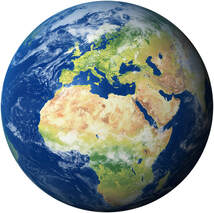 The first four months of President Biden’s administration have presented a watershed change in priorities, promising renewed emphasis on environmental protection, natural resources and land conservation, and mitigation of climate change consequences. We greet this news with renewed hope, even as evidence of the catastrophic consequences of climate change continues to mount. The Washington Post is keeping a TALLY of the administration’s environmental actions. In four months, President Biden has begun to transform the nation’s energy and environmental landscape, according to the Washington Post’s analysis, by overturning 34 of former president Donald Trump’s policies and finalizing 21 of his own, as of this writing. From pausing new oil and gas leasing on public lands and waters to rejoining the Paris climate agreement, Biden has elevated the issue of climate change across the U.S. government and signaled a shift away from fossil fuels. In April he pledged that the United States would cut its greenhouse gas emissions between 50 and 52 percent by the end of the decade compared with 2005 levels—a commitment that will trigger major changes in the ways Americans live, work, and travel. “I talked to the experts, and I see the potential for a more prosperous and equitable future. The signs are unmistakable. The science is undeniable,” Biden declared at the virtual climate summit he convened on Earth Day. “The United States isn’t waiting. We are resolving to take action.” <continued . . .>
0 Comments
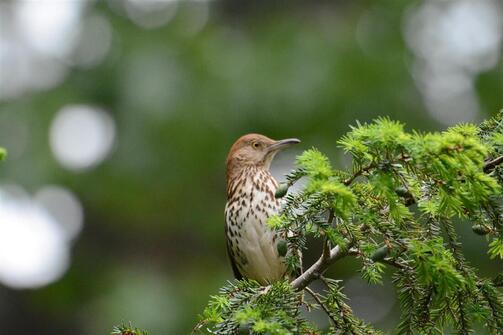 Photo by Tom Earnhardt Photo by Tom Earnhardt Southern communities can’t afford to be an after-thought when it comes to federal policy. The South is experiencing more climate impacts than any other region of the US. Rural, Southern communities are facing disproportionate impacts due to logging and wood production. Our region is also home to five of the top 10 carbon emitters in the country and is experiencing forest destruction from industrial logging at four times the rate of South American rainforests. Our survival depends on immediate and inclusive solutions. The "Southern Communities for a Green New Deal" (SC4GND) policy platform builds on the Green New Deal to center frontline communities in the South. The Dogwood Alliance worked with community leaders and other organizations to develop the forest policy part of the policy platform. The vision we created calls for:
It’s time for a new vision for the southern economy. We need a just transition to clean, renewable energy. We need to invest in a regenerative economy rooted in justice and equity. We need to work together for a healthy, strong, and resilient future. Please learn about the SC4GND policy platform: READ MORE. --Danna Smith, founder of the Dogwood Alliance
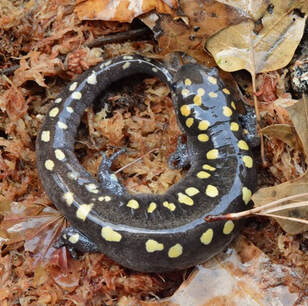 Photo by Tom Earnhardt Photo by Tom Earnhardt Populations of the world’s wild animals have fallen by more than 50 percent in recent decades and humanity is to blame. The popular news magazine, THE WEEK, reported on February 22, 2019, that the swelling human population (now 7.5 billion and mushrooming) has already had devastating impacts on the Earth’s wildlife. We’ve driven thousands of species to the edge of extinction through habitat loss, overfishing and hunting, trophy animal collection, introduction of harmful invasive species, toxic pollution, and climate change. Over the past 40 years, the number of wild animals–mammals, birds, reptiles, amphibians, insects, and marine life–have plunged by 50 percent. The World Wildlife Fund (WWF) estimates that populations of higher-order vertebrate animal species have decreased by an average of 60 percent since 1970. <<continued . . .>> This year, with clear evidence that the Trump Administration is jeopardizing many U.S. environmental conservation and protection programs and policies, with hugely damaging consequences, Gary E. Machlis, former National Park Service science advisor (and Clemson University professor of environmental sustainability), and Jonathan B. Jarvis, retired NPS career professional and national director from 2009 to 2017, co-authored an important and inspirational book. The Future of Conservation in America: a Chart for Rough Water (University of Chicago Press) asserts that we are in a period of “rough water,” affecting many environmental assets and conservation programs. The authors identify three major environmental and social threats (and the dangerous irresponsibility of denying them) confronting America: climate change, species extinction, and economic inequality. Actions are required to navigate through the very rough waters facing us. It is essential to assure that the conservation movement is understood by Americans (and especially by young people) as critically relevant to public health and interest. A general re-commitment to environmental conservation and protection is necessary. <<continued>>
Our hearts go out to all the communities recently impacted by catastrophic hurricanes and floods. The magnitude of devastation is shocking. Many of us are contributing to disaster relief funds, and wondering what more we can do. As climate change contributes to more intense storm events, there will be increased need for land conservation and water protection groups to be involved in community-based disaster preparedness and emergency response, and also in proactive conservation planning and public education to reduce vulnerabilities to flood and storm disasters. Many land and water conservation groups already are collaborating across sectors to build resilient ecological and social systems that mitigate the impact of natural disasters before they occur.
--Chuck Roe, President, Southern Conservation Partners Renowned journalist and commentator Thomas Friedman published “Thank You for Being Late: An Optimist’s Guide to Thriving in the Age of Accelerations” last year. After reviewing the accelerating environmental damages, stresses, and desperate condition of the Earth (“Mother Nature,” in his terminology) and its ecological systems and climate, Friedman quotes oceanographer Sylvia Earle’s succinct summation: “What we do right now, or fail to do, will determine the future—not just for us, but for all life on Earth.” Friedman’s own conclusion, upon reviewing our current state of phenomenal, unparalleled accelerations in technological, socio-economic, and environmental changes, is that, with our insults to the natural environment and human population TRIPLING in size in only 60 years (and with, currently, 1 of every 122 people on Earth a displaced refugee), we are on the verge of irreversible alteration of the Earth’s ecological balances and are at risk of wrecking our global climate, biodiversity, oceans, and ecosystem stabilizers and boundaries. "Without compounding, multiplicative commitments along all fronts that are commensurate with the magnitude of the challenge we face, we stand NO chance –zero--of preserving a stable planet when there will be so many more people, armed with so many more powerful tools, propelled by a supernova [that of electronic and digital technologies; and the internet information cloud] … I will keep saying … as long as I have the breath: we are the first generation for whom ‘later’ will be the time when all of Mother Nature’s buffers, spare tires, tricks of the trade, and tools for adapting and bouncing back will be exhausted or breached. If we don’t act quickly together to mitigate these trends, we will be the first generation of humans for whom later will be too late.”
Friedman directs us to use Mother Nature as a mentor for societal and political adaptation and resilience, and to embrace diversity and change. With hopeful optimism he suggests we can learn from and employ experiences from local communities, such as his home town in Minnesota, that have overcome challenges effectively and have embraced and grown from social, ethnic, and economic diversity. There is no better time than now to pause, find your community and place in which to join with others, and get to work. --Chuck Roe, President, Southern Conservation Partners |
When we see land as a community to which we belong, we may begin to use it with love and respect.... Conservation, viewed in its entirety, is the slow and laborious unfolding of a new relationship between people and land." There is in fact no distinction between the fate of the land and the fate of the people. When one is abused, the other suffers. From the PresidentSCP President Chuck Roe looked at land conservation along the route of John Muir's "Southern Trek." About ViewpointThis blog offers views of our Board and partners. We invite your viewpoint on the following questions: Archives
September 2023
Categories
All
|

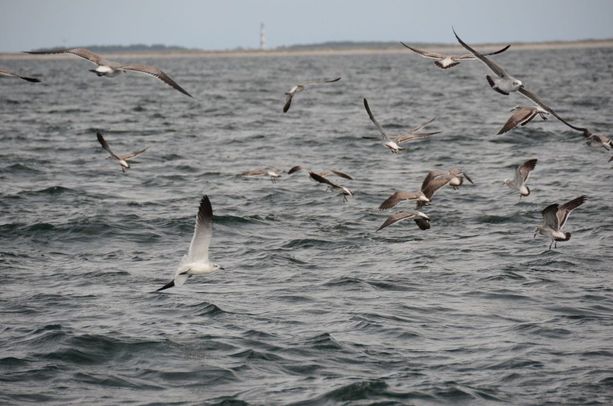
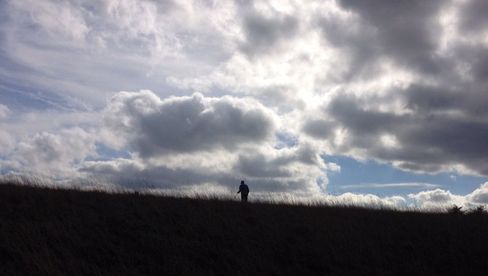
 RSS Feed
RSS Feed